会议资讯
第一期中国世界自然遗产能力建设研讨会于12月13-14日在山东泰安成功举办
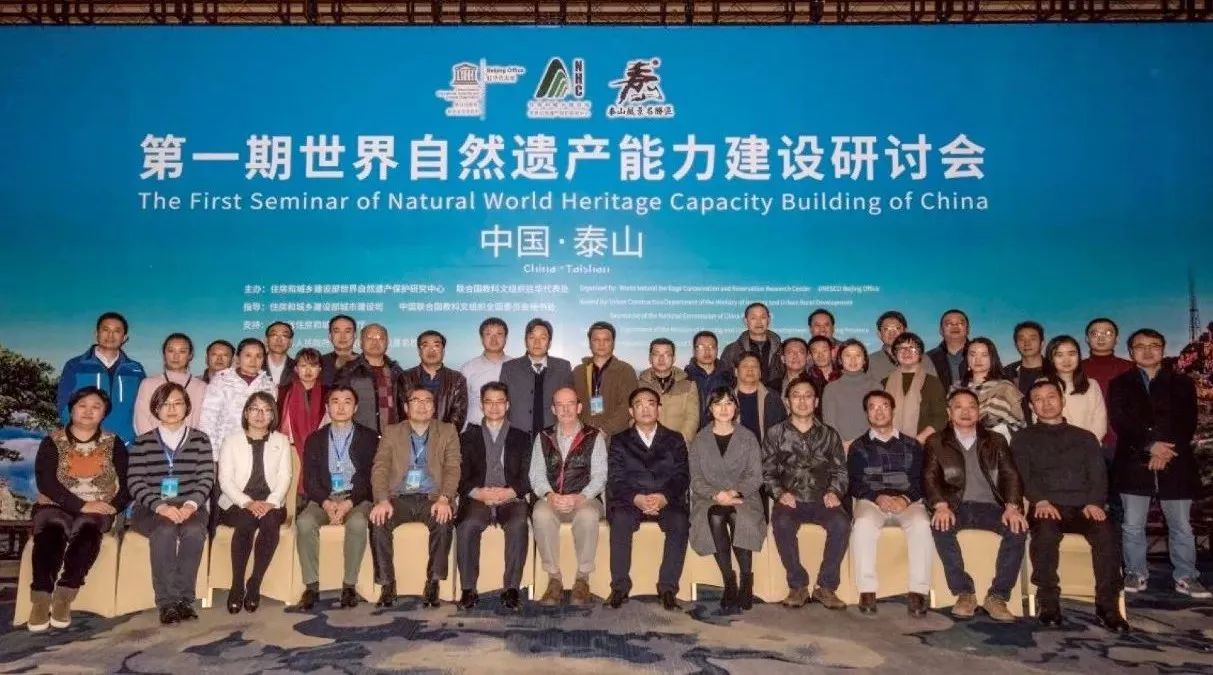
第一期中国世界自然遗产能力建设研讨会 于12月13-14日在山东泰安成功举办
The First Seminar on China Natural World Heritage Capacity Building successfully held at Tai’an, Shandong Province on 13-14 December
2017年12月13-14日,第一期中国世界自然遗产能力建设研讨会在山东泰安成功举办。此次研讨会由联合国教科文组织驻华代表处和中国住房和城乡建设部世界自然遗产中心共同主办, 是在三年期中国世界遗产能力建设框架下开展的首期针对自然和混合世界遗产地的培训班。 约40名世界遗产地管理者全程参加了此次培训。
On 13-14 December 2017, the First Seminar on China Natural World Heritage Capacity Building was successfully held at Tai’an, Shandong Province. Jointly held by UNESCO Beijing Office and the World Natural Heritage Conservation and Research Center, this seminar is the first under the three-year capacity building framework for World Heritage in China. Approximately 40 World Heritage managers participated in the seminar.
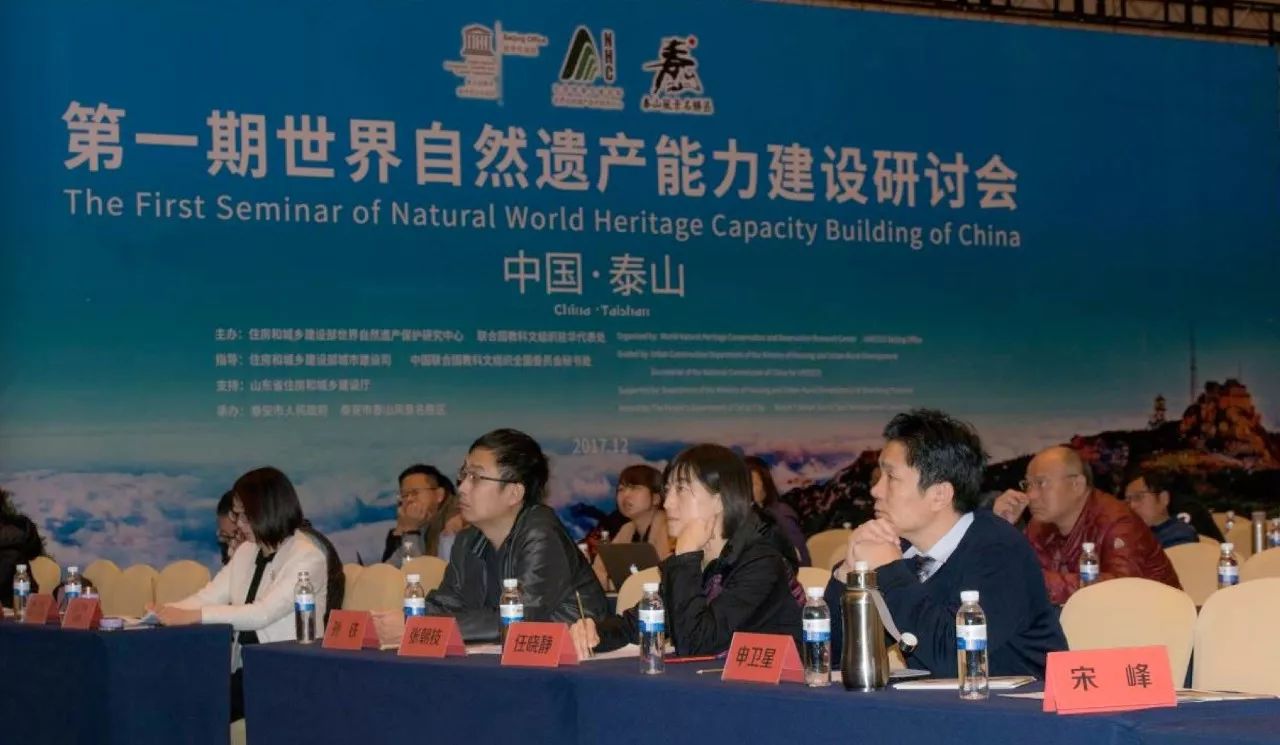
自2017年起, 联合国教科文组织驻华代表处在《中国世界遗产地保护管理》项目三期 (2017-2020)框架开展为期三年的中国世界遗产能力建设专项活动。这一活动在联合国教科文组织世界遗产能力建设战略指导下进行,是在新的形势下探索如何通过能力提升保护遗产以促进可持续发展的一项努力,和联合国2030年可持续发展日程的精神相符。 这一能力建设活动以过去七年间联合国教科文组织与中国世界遗产保护管理部门、世界遗产地、学术机构和专家的合作和思考为基础,具体活动内容包括系统性高质量的年度培训班、教材编制和文献翻译、以及遗产地管理人员网络的建立等。
Since 2017, UNESCO Beijing Office has been undertaking a three-year capacity building activity under the project framework of “Conservation and Management of World Heritage Sites in China” Phase III (2017-2020). Guided by the UNESCO World Heritage Capacity Building Strategy and in line with the UN 2030 Agenda for Sustainable Development, this activity is an endeavor to explore how to conserve heritage through enhancing capacity and for the promotion of sustainable development. Over seven years of cooperation between UNESCO and China’s World Heritage conservation and management entities, sites, academic institutions and experts lays a solid foundation for the implementation of this capacity building activities, which include systematic and high-quality annual workshops, compilation and translation of training materials, networking for heritage site managers, etc.
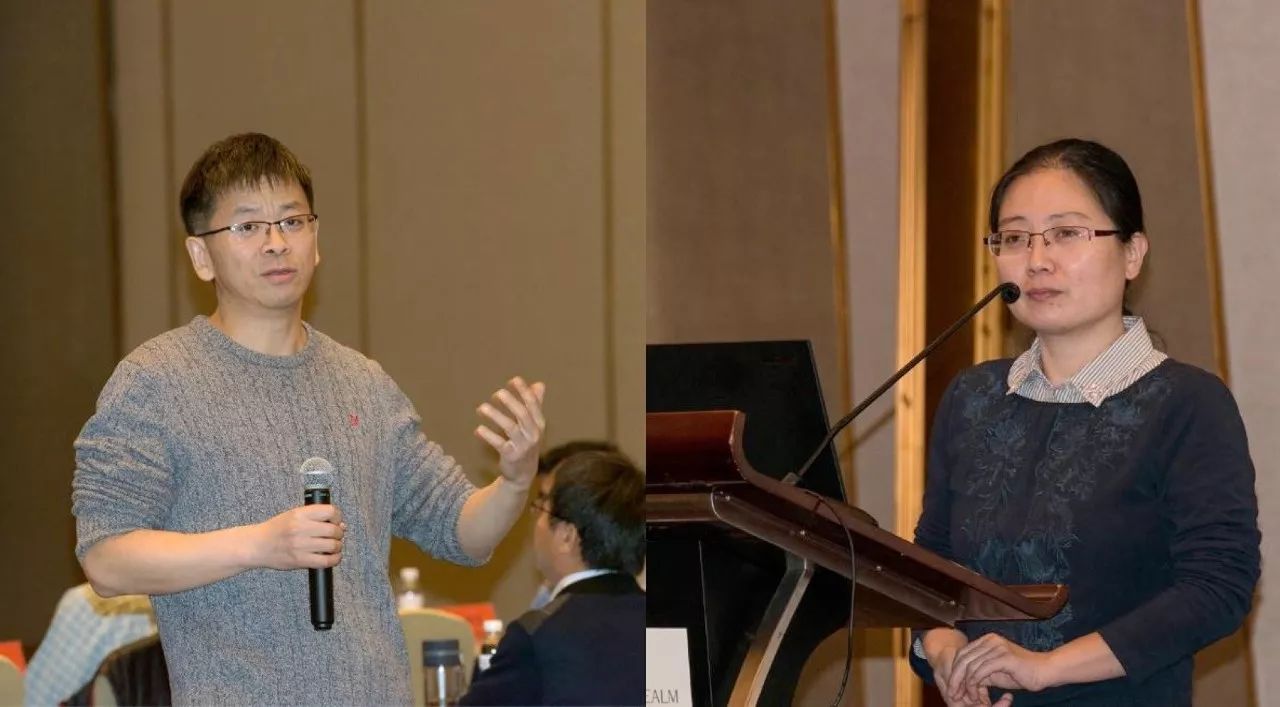
由左至右:北京大学城市与环境学院副教授宋峰;清华大学建筑学院景观学系副教授庄优波
Left to right: Song Feng, Associate Professor of the College of Urban and Environmental Sciences, Peking University; Zhuang Youbo, Associate Professor of the Department of Landscape Architecture, School of Architecture, Tsinghua University
本次研讨会分为五个部分:世界遗产及其管理概述、中国世界自然遗产地保护管理规划研究、世界遗产地自然价值管理、世界遗产地可持续旅游利用与管理、世界遗产监测管理有效性及其研究,分别由北京大学城市与环境学院副教授宋峰、清华大学建筑学院景观学系副教授庄优波、世界自然保护联盟世界保护区委员会委员及前威尔士郊区保护计划主任彼得·奥登、中山大学旅游学院副院长张朝枝,以及住房城乡建设部世界自然遗产保护研究中心高级工程师任晓静讲授。
The seminar is in five modules: overview of World Heritage and its management; research on natural World Heritage site conservation and management in China; managing the natural values of World Heritage sites; utilization and management of World Heritage sustainable tourism; World Heritage monitoring effectiveness and research. The modules were led, respectively, by Prof. Song Feng of the College of Urban and Environmental Sciences of Peking University, Prof. Zhuang Youbo of the Department of Landscape Architecture of Tsinghua University School of Architecture, Mr. Peter Ogden of the World Commission on Protected Areas of IUCN, Prof. Zhang Chaozhi of the School of Tourism Management of Sun Yat-sen University, and Ms. Ren Xiaojing of the World Heritage Conservation and Research Center of the Ministry of Housing and Urban-Rural Development.
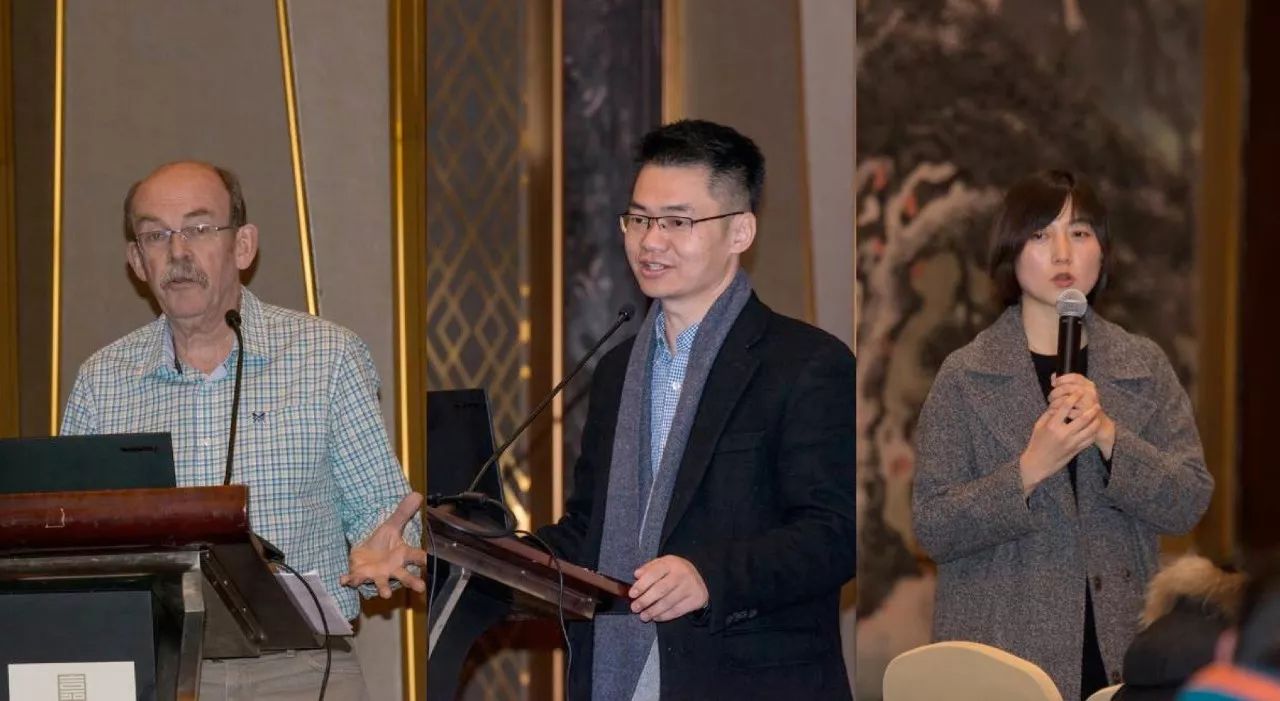
由左至右:世界自然保护联盟世界保护区委员会委员、前威尔士郊区保护计划主任彼得·奥登,中山大学旅游学院副院长张朝枝,住房城乡建设部世界自然遗产保护研究中心高级工程师任晓静
Left to right: Peter Ogden, member of the World Commission on Protected Areas of IUCN and former Director of the Campaign for the Protection of Rural Wales; Zhang Chaozhi, Associate Dean, School of Tourism Management, Sun Yat-sen University; Ren Xiaojing, Senior Engineer, World Heritage Conservation and Research Center, MOHURD
在第一天的培训中,宋峰老师主要依照联合国教科文组织世界遗产资源手册《世界自然遗产管理》的脉络,对世界遗产背景文件、相关术语和概念以及参考资料进行了简要介绍,并着重阐述了以价值为导向的世界遗产管理方法。庄优波老师在年会演讲的基础之上,更加详细地分析了各国的遗产地管理体系及其和国内其它保护地管理体系的关系。随后,她梳理了中国的世界自然遗产地保护管理规划实践的历史演变,并在国家公园体制试点的推进、十九大报告要求的背景下,对中国世界遗产地保护管理规划的定位以及内容提出了建议。彼得·奥登先生结合世界自然保护联盟的《世界遗产展望》《最佳管理保护地绿色名录》等评估性报告,在欧洲的保护地管理规划中得到广泛运用的“地点标准”等工具,以及世界范围内多个优秀的保护管理规划实例,对有效的管理规划所应蕴含的要素以及如何对管理规划的有效性进行评估进行了讲解。
In the first day of the seminar, Prof. Song Feng introduced the background documents, relevant terms and concepts, and available resources based on the World Heritage Resource Manual “Management of Natural World Heritage”, and elaborates on the value-based management of World Heritage. On the basis of her speech at the Annual Conference, Prof. Zhuang Youbo went more in detail on the World Heritage management systems in different countries and their relations with other domestic management systems of protected areas. She then traces the evolution of natural World Heritage management planning in China, and raised suggestions on the positioning and contents of China’s World Heritage conservation and management planning against the backdrop of the progression of the national park system and the 19th CPC National Congress. Mr. Peter Ogden explained the elements of an effective management plan and the ways to evaluate its effectiveness using IUCN’s World Heritage Outlook and Green List, tools such as “Place Standard” that are widely used in Europe in the management planning of protected areas, and multiple examples of good planning around the world.
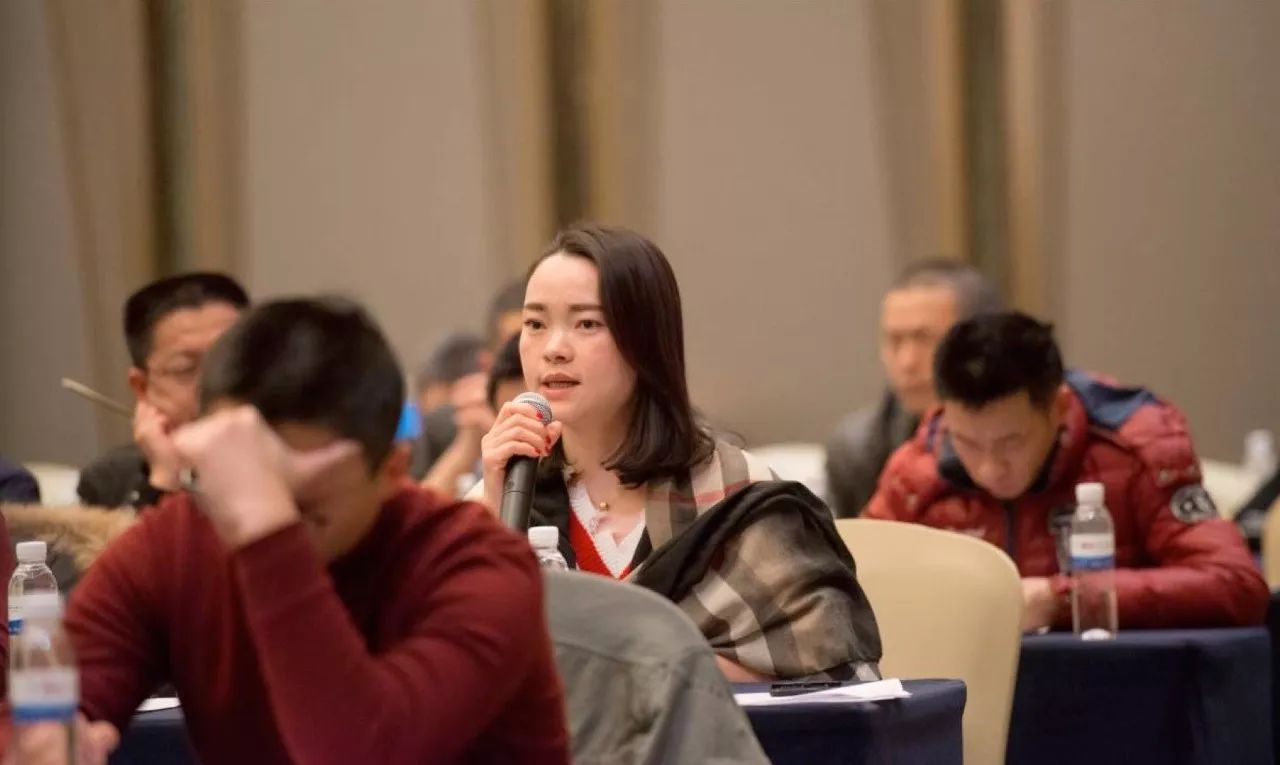
提问环节
Q & A
在第二天的培训中,张朝枝老师从旅游行业的角度,就世界遗产可持续旅游这一概念及其实际开展进行了讲述。他在梳理可持续旅游历史脉络的基础之上,探讨了中国官方语境下可持续旅游的问题和困境,并对在这一大环境下如何有技巧、有效益、多赢共享地利用世界遗产地旅游资源做了分析和讲解。任晓静工程师介绍了当前应用于120个国家级风景名胜区及世界遗产地的动态遥感监测技术,并对这一技术在加强国家宏观层面对风景名胜区和世界自然遗产的管理能力、推动实施世界自然遗产整体性以及针对性监测提出了设想。
On the second day of the seminar, Prof. Zhang Chaozhi discussed the concept and practice of World Heritage sustainable tourism from the perspective of the tourism industry. Tracing the history of sustainable tourism, he probed the problems and dilemmas of sustainable tourism within the Chinese context, and analyzed the ways to tactically, efficiently, and cooperatively utilize tourism resources at World Heritage sites. Ms. Ren Xiaojing introduced the remote sensing monitoring technology currently covering 120 national scenic and historic areas and World Heritage sites, and shared visions on the growing role of this technology in enhancing national management capacity of scenic and historic areas and World Heritage site at a macro-level, and promoting both holistic and specific monitoring of natural World Heritage.
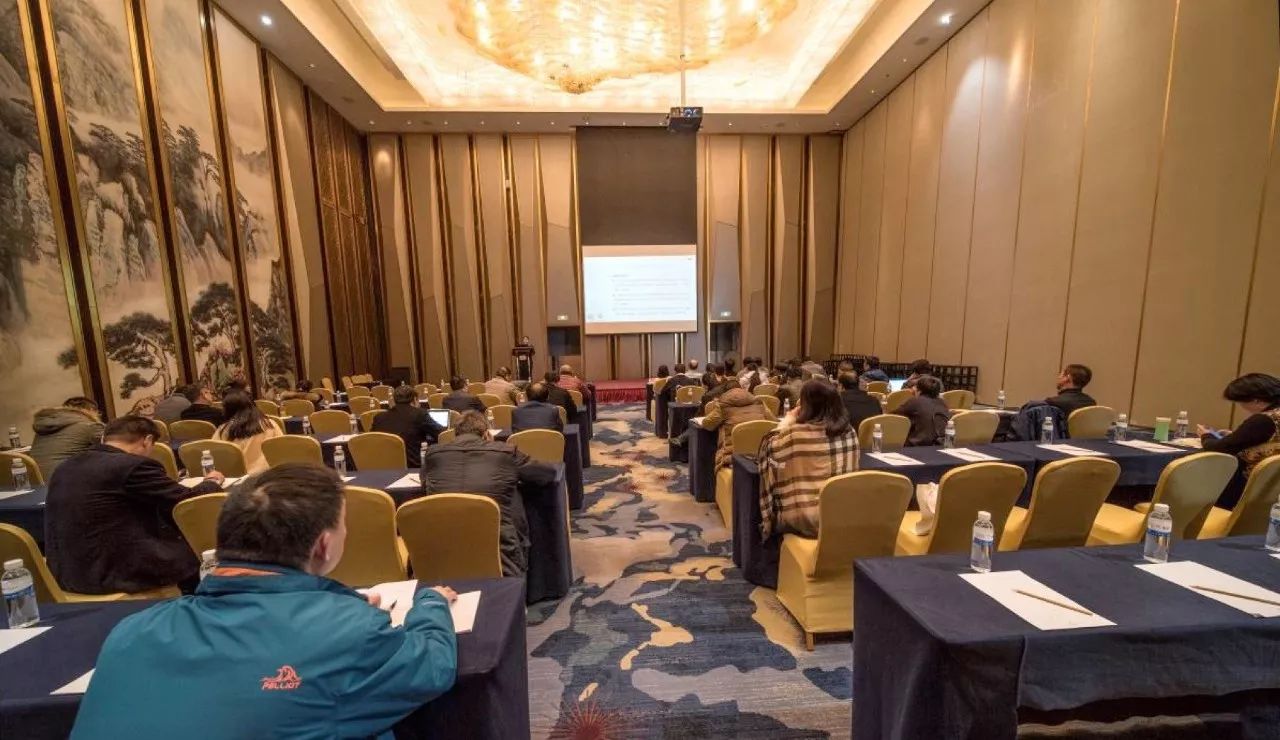
会后,所有参培人员分为两组,就研讨内容和形式、收获和建议进行了讨论。此次研讨会的成果和反馈将为后续两年能力建设活动的设计与开展提供有益的参考,同时也将为中国世界自然遗产保护管理培训教材和最佳实践出版物的编写提供基础。
After the seminar, participants discussed key learnings and provided feedback on its format and content. The achievements and feedback of this seminar shall serve as a useful reference for the designing and implementation of capacity building activities over the next two years. They will also provide a foundation for the compilation of the training materials package and best practice publication on the conservation and management of natural World Heritage in China.
图片由泰山风景名胜区管理委员会提供
Photos provided by Taishan Scenic and Historic Area Management Committee
